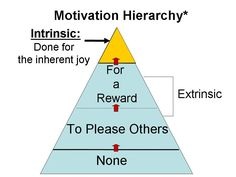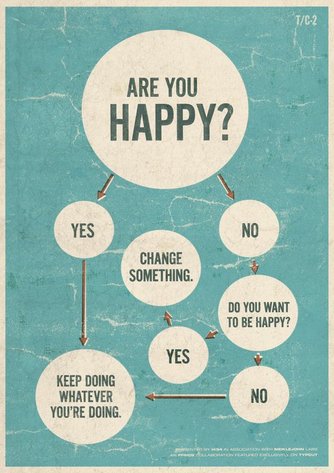What Do You Gain?
Alongside goal-setting exists an elaborate matrix of rewards, liability, limitations, opportunities, and incentives.
For example, you might be motivated to apply to Princeton University, factoring in both the immediate and long-term prestige afforded to its students, along with the value of the degree on the job market, its active alumni network supporting current and recently graduated students, and the likelihood that your time there will set you up to be a stronger candidate when you apply to graduate programs.
Those are the rewards, or gains. But consider also that Princeton's admission rate for 2013 was 7.4% and of the 1,963 students admitted, only 2.5% or 49 individuals had GPA's under 3.5. This will be an INTENSELY COMPETITIVE environment, people. Do you thrive when working under pressure?
Additionally, it costs $56,750 for an undergraduate to study at Princeton for a single year. Compare that with Penn State University, where the cost is around than $29,000 for an out-of-state student. PSU ranks #1 on Princeton Review's list of Top 20 schools with the Best Career Services.
While accounting for the obvious fact that, hey, maybe someone who goes to Princeton doesn't have to worry as much about utilizing career services, if both students are planning to go to college for 4 years and transition immediately to the professional realm, you might see a better ROI with Penn State.
Do You Even Like Carrots?
So when selecting a school, picking classes, or deciding where you want to work or volunteer, it stands that your ROI will be higher if you pick a setting in which you feel like the energy you invest is appreciated and acknowledged.
In other words, ROI is not a simply math function for students because there are these intangible factors that are no less important than dollars and cents. Namely: what motivates you and how do you define success?
Which brings me to my next point: it is less important where you go to school and what you study than it is to pick a place and field that motivates you to learn, practice, and master skills such as Critical Thinking, Critical Reading, Problem-Solving, and Writing,
I know plenty of people who will disagree with me, but we are putting too much stock in a subject-based curriculum at the expense of what is truly valuable after graduating: developing skills for a broader application in both academic and professional settings.
You can pick a major purely according to what you calculate as having the biggest pay-off, but if you don't like the classes, professors, or fellow students, your motivation will wane quickly, productivity will decrease, and your definition of success might morph to something like, "Just get through it" or "Just pass the class" or "Just get into business school." The means will stop justifying the ends, because you no longer find the ends all that compelling or rewarding.
What's Your Carrot?
Your parents' carrots are not always your carrots.
Where the money is may not be your carrot.
Figure out what motivates you, the material and immaterial factors. Decide what kind of environment is most conducive to you being productive and efficient, as well as the settings that make you feel stifled or apathetic. And most importantly, feel free to change your goal when it feels like the means no longer justify the ends.
ROI can help you discern what kind of carrots work for you, while keeping in mind the larger objective is to gain something out of all the time, energy, and cost you invest.
But what looks like a gain is personal and particular to each individual, so don't worry if your equation doesn't add up in the eyes of others.






